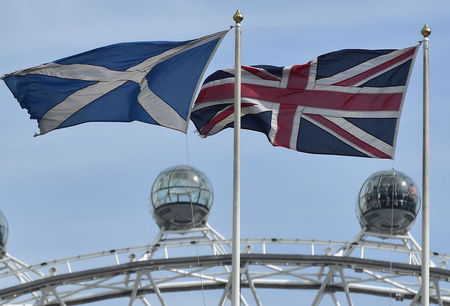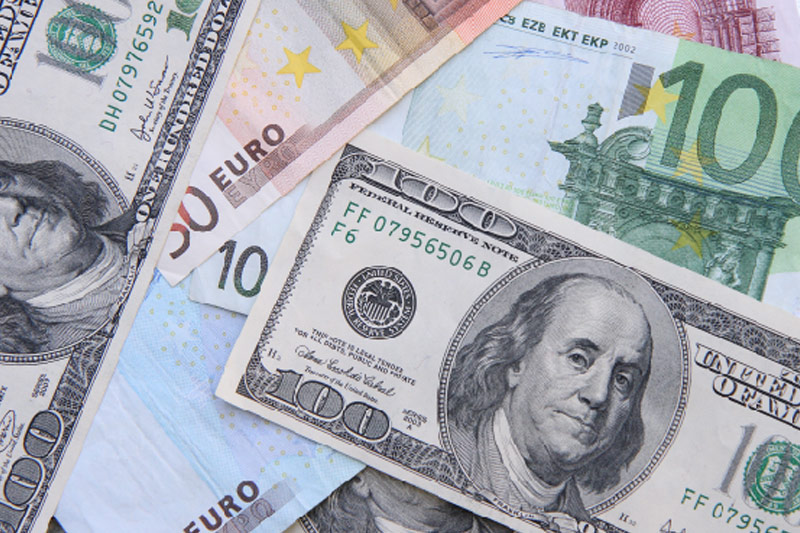By Alistair Smout and Guy Faulconbridge
EDINBURGH/LONDON (Reuters) - A poll showing support for Scottish independence at its highest ever level threw the fate of the United Kingdom into question on Tuesday, just two weeks before Scots vote on whether to secede.
The poll by YouGov showed the unionist lead had shrunk to 6 percentage points from 22 a month ago as support for independence jumped to 47 percent in August, suggesting a major shift in opinion ahead of the Sept. 18 referendum.
After months of polls showing nationalists heading for defeat in the vote, the YouGov poll for the first time raises the real prospect that secessionists could achieve their goal of breaking the 307-year-old union with England.
"A ‘Yes' victory is now a real possibility," YouGov President Peter Kellner, one of Britain's most respected pollsters, said. "A close finish looks likely."
Polls show different levels of support for the unionist campaign and although none have shown the independence camp in the lead, the sudden surge indicated by the poll electrified Britain's political class after its summer break.
A vote to breakaway would be followed by negotiations with London on what to do about sterling, the national debt, North Sea oil and the future of Britain's nuclear submarine base in Scotland ahead of independence pencilled in for March 24, 2016.
If Scots voted to leave the United Kingdom, Prime Minister David Cameron would face calls to resign ahead of a national election in May 2015 while Labour's chances of gaining a majority could be scuppered if it lost its Scottish lawmakers.
Sterling fell to near a five-month low against the dollar and also slipped versus a generally weak euro on Tuesday, while the cost of hedging against sharp swings in the pound rose as investors sought to insure against the risk of secession.
Traders saw further losses as the vote approaches.
"A Scottish 'Yes' to independence poses far more questions than it answers but my best guess is that a 'Yes' would trigger a 3-5 percent fall by sterling as an initial reaction," said Kit Juckes, currency analyst at Societe Generale.
CLOSE FINISH?
YouGov's Kellner, 67, said the poll data was so astounding that when he first saw it, he double checked to see if there had been a sampling error. But he said that after checking the data, he was certain a real movement had taken place.
"When I first saw our data, I wanted to make sure the movement was real," he said. "I am certain it is."
The poll was carried out on Aug. 28-Sept. 1 and 1,063 people were questioned.
When respondents were asked how they would vote in the referendum, 42 percent said they would vote for independence while 48 percent said they would vote against. Eight percent said they did not know and 2 percent did not intend to vote.
It was the first time YouGov has showed support for "Yes" above 40 percent and support for "No" below 50 percent. About 4 million Scottish residents have a vote in the referendum, so the poll indicates 320,000 voters are still undecided.
By excluding those not intending to vote or undecided, the poll showed support for keeping the union at 53 percent against 47 percent seeking independence.
"The 'Yes' campaign has both gained converts, and secured a two-to-one lead among people who were undecided and have now taken sides," Kellner said.
Supporters of the Labour party, traditionally the dominant political force in Scotland, had become more supportive of independence, while economic worries about the prospect of independence had diminished, YouGov said.
ODDS NARROW
Scottish nationalists said the poll, which comes just over a week after pro-independence leader Alex Salmond won a television debate, was a breakthrough moment in the campaign.
"More and more people are beginning to realise that a 'Yes' vote is Scotland's one opportunity to make that enormous wealth work better for everybody who lives and works here," said Blair Jenkins, head of the independence campaign team.
Nationalists accuse London of squandering Scotland's wealth and say Scotland would be one of the world's richest countries if it took control of its own destiny.
Unionists, including Britain's three main political parties, say the United Kingdom is stronger if it stays together and that Scottish independence would bring significant financial, economic and political uncertainty.
Jenkins said the unionist campaign was in panic but the British government said it had confidence in its argument in favour of Scotland staying part of the United Kingdom.
"The only poll that counts is the referendum itself," Cameron's spokesman told reporters.
"There isn't a change in the approach that the government has been and will be taking, which is in summary a real confidence in the argument that the government and others are making."
Bookmaker Ladbrokes said that the odds on a vote in favour of independence had narrowed overnight since the poll to 11/4, meaning punters now put the likelihood of a split at its highest since May this year. That continued a narrowing trend seen since the first television debate in August when the odds were 5/1.

"Since the second debate we've been taking upwards of 5,000 pounds worth of bets a day for 'Yes' from all over Scotland," said Ladbrokes spokesman Alex Donohue. "It's basically one way traffic at the moment."
(Additional reporting by William James and Anirban Nag in London; Editing by Catherine Evans)
